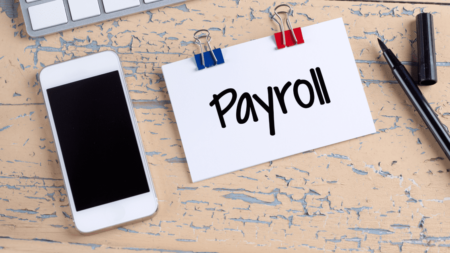Many people from different parts of the world try to avoid being drawn into the dangerous web of financial debts. one common way to avoid this is the use of a credit limit. Credit cards offer a superb way to organize your expenses and live within your budget.
We often go above our means either for emergency situations like a health crisis or just to satisfy a bad habit, which can lead to a pile of credit card debts.
The majority of us have at least one credit card, and by implication, everyone has one credit balance or the other to manage. Therefore every credit card issued to cardholders has spending limits assigned to them. This maximum limit varies by cardholders and card issuers. It is usually determined by the cardholder’s financial information at the disposal of the bank or credit card issuer as well as the policy of the bank.
What is a Credit Limit?
The credit limit is the maximum monthly spending limit or amount available on your card to make purchases or cash advances. Your credit limit is usually displayed on your account statement and is determined by several factors. Whenever the maximum spending limit on the credit card is exceeded, the bank imposes a penalty charge on the cardholder.
How Credit Limit Works
The credit limit on your credit card is the maximum outstanding balance you can carry at any time without any penalty charges on your account. Hence, it is essential to have a foreknowledge of the credit limit on your credit card before making use of the card for purchases or cash advances. If you overuse or exceed your credit limit, there may be a decline on your credit card, coupled with other charges.
When you apply for a credit card, the card issuer considers several factors in determining the credit limit that will be assigned to you. You might also be allowed to choose your preferred credit limit, but the bank has the prerogative to specify your credit limit based on your financial capability.
A credit limit works like a spending limit on an advanced credit, which you must pay back. Most people exceed the credit limit on their card or what they can afford to pay back, and when they cannot meet the payment, a huge pile of debt gathers on their credit card.
Factors That Determine Your Credit Limit
When you receive your credit card, you should be able to notice your assigned credit limit. Although this may not be what you wanted or expected, there are certain factors that guide credit card issuers in determining how much spending limit a credit cardholder should have.
Credit Score
Banks and credit card issuers employ different methods to determine what credit limit should be assigned to a cardholder, but the most consistent and significant factor is the credit score of the card applicant.
As an applicant, you are seen as a low-risk client to the bank if you have a strong or high credit score, which is usually about 670 and above. This means you have a history of paying your bills on time without defaults. As a result, the bank or credit card issuer will provide you with a high credit limit.
On the other hand, if your credit history indicates late payments of bills and a history of credit or loan decline, it implies a lower credit score. The low credit rating – which is usually anything below 670 – may be seen by the bank or credit card issuer as a potentially high risk. This may result in a lower credit limit if approved for a credit card.
Annual/Monthly Income Level
Most credit card issuers set minimum income requirements, which you must meet to be eligible for their credit card. If you have a high income, you will likely get a high credit limit, and vice versa.
Other determining factors for your credit limit include:
- Debt profile
- Rate of applications for other forms of credit or loan
- Type of credit card
- Credit card provider/issuer
- Length of credit history
How To Increase Your Credit Limit
Irrespective of how low your credit limit is, it can benefit your overall credit score when you do not exceed the limit and pay your credit card balance in full as when due. There are diverse reasons why people increase their credit limit. If the spending limit on your credit card cannot meet your needs, a credit limit increase can be worthwhile.
One important factor to consider is the proper usage of your available credit and timely payment of your monthly balance. When this is done, you may be eligible for an increase in your credit limit, and requesting a boost can be conveniently processed.
The following are some of the measures that must be in place to get approved for a credit limit increase:
- You must have been a cardholder for at least six months or more.
- You must have consistently paid your credit card balance in full every month.
- You must have an improved credit score.
- You must have been using your credit card actively and credibly, with good spending habits.
- You must have an improved income compared to when the card was issued to you.
- You might need to inform the bank or credit card issuer by applying for a credit limit increase via online banking services, phone calls, or at any of the bank’s branches. Although on some rare occasions, the bank may offer you a credit limit increase after considering your overall financial standing.
Benefits of Credit Limit Increase
Before proceeding to request an increase in your credit limit, it is vital to consider the pros of such action.
- A high credit limit increases the amount of unused credit at your disposal, giving you a higher credit score due to the lower credit utilization ratio.
- An increased credit limit will also give you an improved amount of available credit, which can be vital for financial emergencies.
- A high credit limit can help you to earn more rewards points and cashback when you use your credit card on large eligible purchases.
Flaws of Credit Limit Increase
- One of the many drawbacks of having an increased credit limit is that if not properly handled, it increases your likelihood of having a buildup of credit card debts.
- Another deficiency of a boosted credit limit is that it may trigger a hard inquiry on your credit report by the issuer. This is to determine if they will grant your request for a credit limit increase or not. The implication of this is that it can negatively affect your credit score.
- With a booted credit limit, the outstanding balance, which rolls over from one month to the next, will attract an increase in interest charges.
High And Low-Limit Credit Cards In Canada
Refresh Financial Secured Visa Card
Minimum Credit Limit: $200
Scotiabank More Rewards Visa Card
Minimum Credit Limit: $500
No-Fee Scotiabank Value Visa Card
Minimum Credit Limit: $500
TD Platinum Travel Visa Card
Minimum Credit Limit: $1000
TD Emerald Flex Rate Visa Card
Minimum Credit Limit: $1000
TD Aeroplan Visa Platinum Card
Minimum Credit Limit: $1500
Scotiabank Gold American Express Card
Minimum Credit Limit: $5000
TD Cash Back Visa Infinite Card
Minimum credit limit: $5000
TD Aeroplan Visa Infinite Privilege Card
Minimum Credit Limit: $10,000
Scotiabank Platinum American Express Card
Minimum Credit Limit: $10,000
FAQs
What is the credit limit for MasterCard?
The credit limit for MasterCard credit cardholders varies and is a factor of the bank or credit card issuer. The card issuer determines the credit limit ranges from 200 CAD to about 5000 CAD or more.
What is the credit limit for the Visa card?
There is no specific spending limit on the visa card. Once approved for a credit card, the card issuer will determine your credit limit.
Can you overspend your credit card limit?
If you exceed your credit limit while making purchases, the financial institution may decline the transaction. However, if the transaction is approved and you exceed your credit limit, the card issuer will charge you a penalty fee.
Am I automatically eligible for a credit limit increase as a credit cardholder?
To be eligible for a credit limit increase, you must have been operating your credit card account for at least six months or more, depending on the provider, and with favorable spending and payment routine.
Once I request for credit limit increase, can I automatically expect a boost in my credit limit?
Getting a credit limit is subject to the approval of the credit card issuer. The bank or credit card issuer reserves the right to approve or decline a request for a credit limit increase. Sometimes, the card issuer, through account reviews, may notify the cardholder of an offer for a credit limit increase, which the cardholder can either accept or decline.
Can I increase my credit limit again if I decrease or lower it?
Yes. You can increase your credit limit even after previously decreasing it. However, there is always a waiting period between different applications. Hence, depending on the card issuer, you might have to wait for about six months to get another increase.
Will a request for a credit limit increase affect my credit score?
When you request an increase, the card issuer often executes a hard inquiry on your credit report, which may temporarily reduce your overall credit rating.












